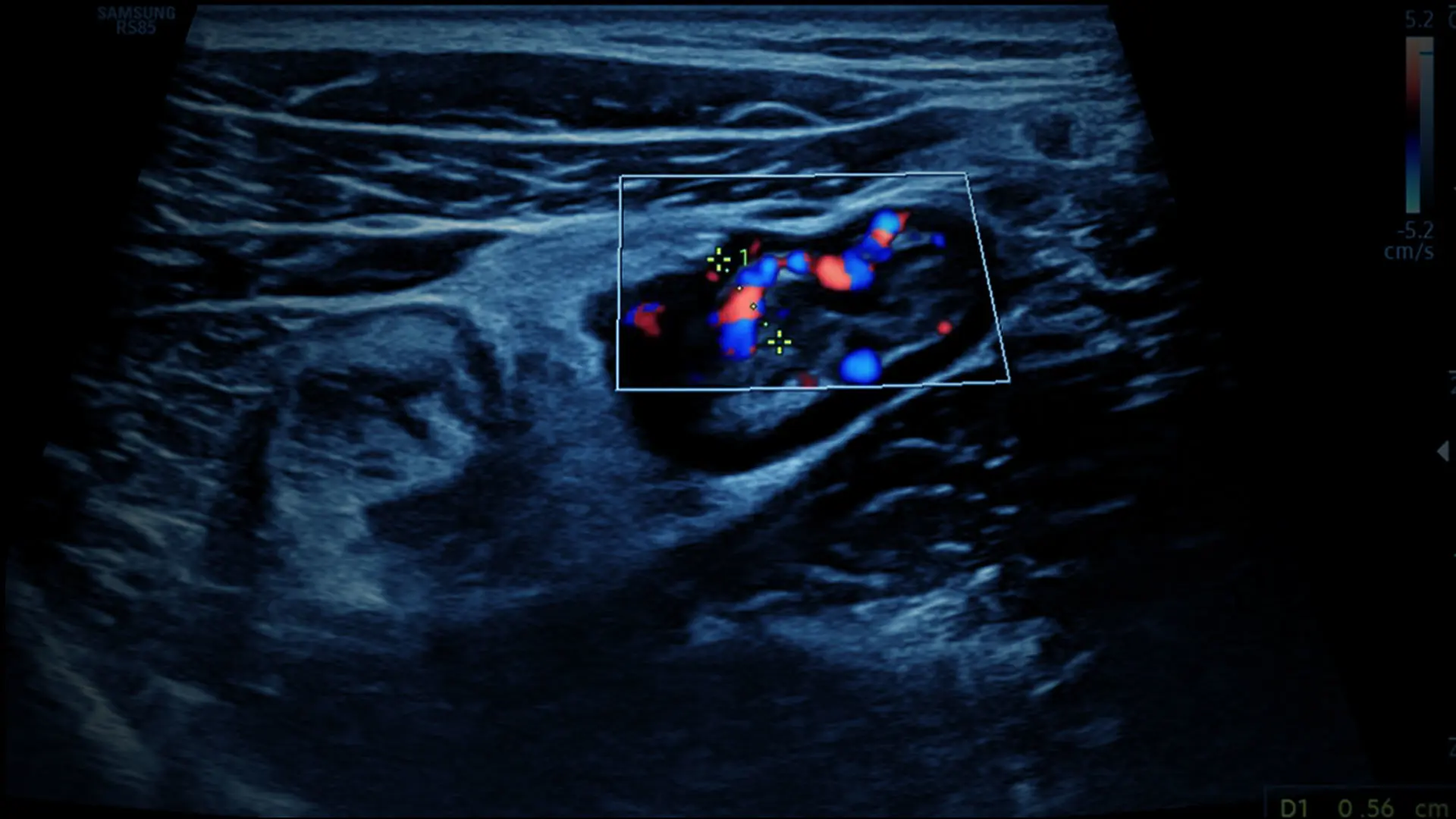Crohn’s disease and ulcerative colitis are chronic inflammatory diseases of the intestines affecting more than 70,000 children in the United States. They often lead to progressive damage, complications, surgery, and a decreased quality of life. Optimizing treatment soon after diagnosis can heal the intestines, alter the natural history of the disease, and prevent complications.
To assess treatment response, patients are traditionally monitored with repeated blood tests, stool studies, MRI or CT scans, and colonoscopies. These studies are invasive, expensive, and often require bowel preparation, sedation, anesthesia, intravenous contrast agents, and radiation.
Ultrasound is a safe and cost-effective way to directly visualize and monitor inflammation in the intestines in real time, without any preparation. It is currently used in Europe, Israel, Australia, and Canada, but has not been widely adopted in the United States. The Susan and Leonard Feinstein Inflammatory Bowel Disease Clinical Center at Mount Sinai is the only center in the country that is currently using ultrasound to monitor inflammation in inflammatory bowel disease patients.
Not only is Mount Sinai the first to use ultrasound routinely during clinic visits to make real-time treatment decisions and reduce unnecessary procedures, but we are leading the United States in novel ultrasound research that will ultimately change the management of inflammatory bowel disease forever. This groundbreaking use of intestinal ultrasound is currently in the implementation stage, with daily use during routine clinic visits and multiple research projects.
Why vote for Mount Sinai Kravis Children's Hospital in U.S. News & World Report’s Best Children’s Hospital rankings?
Expertise in complex chronic GI conditions such as aerodigestive diseases and short bowel syndrome
Holistic and comprehensive care provided to IBD patients and their families, including IBD nutrition and psychosocial support
The authority on Crohn’s disease since the day we named it
Expertise in clinical care and research for patients with eosinophilic GI disorders, including eosinophilic esophagitis (EoE), at the Mount Sinai Center for Eosinophilic Disorders
Comprehensive surgical care for anorectal malformations and Hirschsprung’s disease, including bowel management
Comprehensive pediatric bariatric surgery program
Comprehensive pediatric surgical oncology program with a pediatric oncologic surgeon
We offer an integrated approach to transplant for inherited metabolic liver disease, leveraging the expertise of the Divisions of Genetics and Genomic Sciences, Liver Diseases, and Nephrology, as well as the Recanati-Miller Transplantation Institute. Few centers have the expertise and infrastructure to adequately care for this population.
We are a charter member of the Starzl Network for Excellence in Pediatric Transplantation, which unites top children's transplant centers across the United States and Canada seeking to accelerate improvement and sharing of best practices.
Our interdisciplinary clinical care, together with NIH-funded research, focuses on the emerging clinical and research challenges in hepatology and transplantation.
